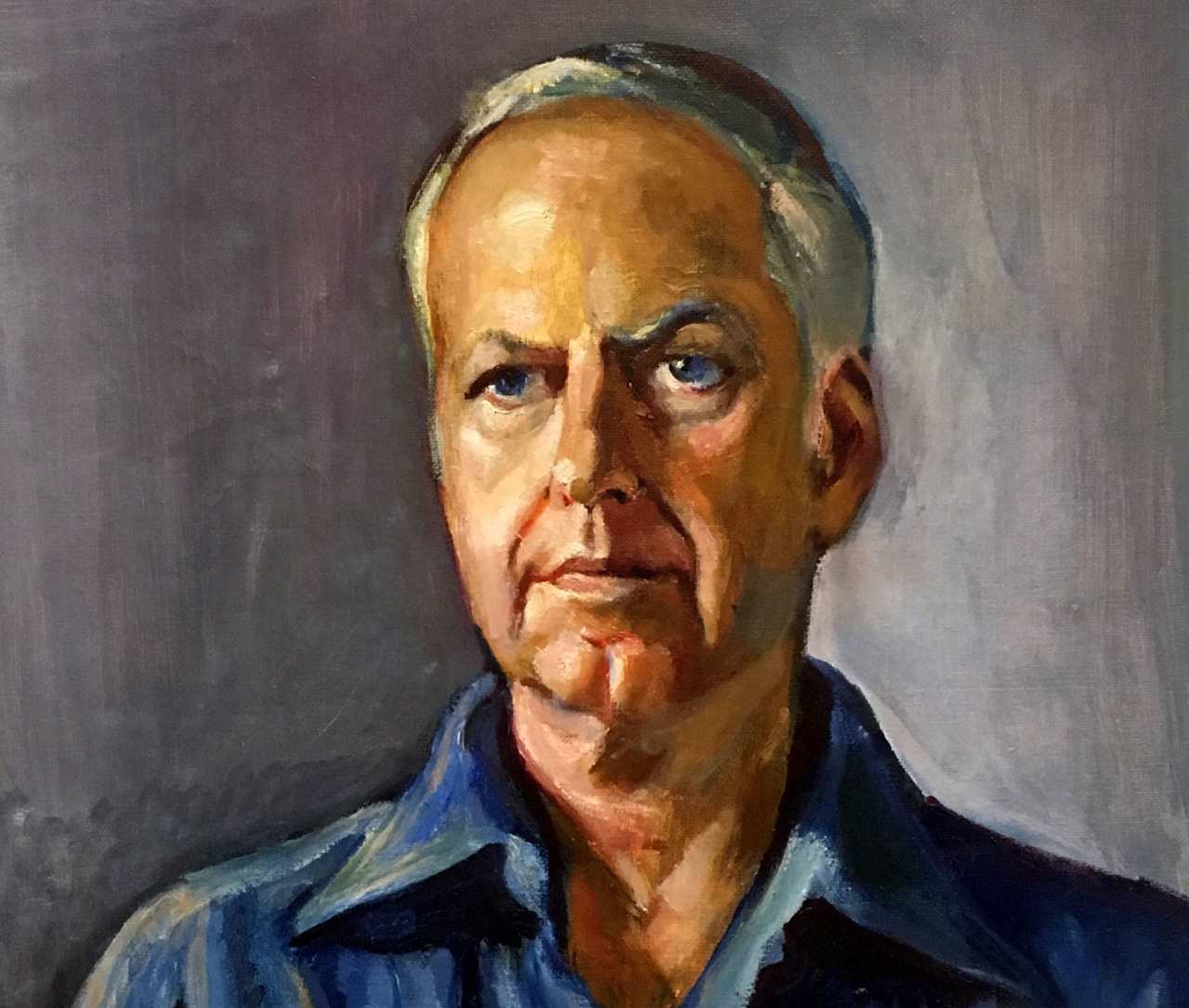Pulitzer Prize winner William Meredith taught English at Connecticut College from 1955 to 1983. He was Poet Laureate Consultant in Poetry to the Library of Congress from 1978 to 1980. Meredith was first openly gay poet to hold this position. In 1996, Meredith was awarded the College Medal, Connecticut College’s highest honor. In 1988, Meredith was awarded an honorary doctorate from the College. Meredith would have turned one hundred years old this year.
In his honor, Connecticut College invited former students, fellow poets, friends and family of Meredith to speak about his legacy on April 12. Richard Harteis, Meredith’s partner of 36 years and a fellow poet and fiction writer, attended and spoke about Meredith.
Professor Charles Hartman, the Lucy Marsh Haskell ‘19 Endowed Professor, Poet in Residence, and Co-Director of the Connecticut College Creative Writing Program, stated, “We’re celebrating William and we’re also celebrating the century which he represents, during which Conn has had a remarkable presence in the arts in America.”
Meredith’s skill with words and deep respect for the power of language is apparent in the way his former students and loved ones speak about him. The poet Michael Collier ’76 said in his opening remarks, “From Meredith I learned something about decorum, about the necessity to be truthful, to avoid glibness. That language is sacred because it encapsulates the history of a people. And that poems serve the important function of refreshing and renewing language.”
Meredith’s impact on Connecticut College is apparent to this day. Hartman commented on Meredith’s influence, saying, “When he retired, there was no real question that someone should be brought in to teach poetry classes here. At Conn, 20% of the English department specializes in creative writing. This is because William made poetry an obvious fact on the ground at Connecticut College. He established in people’s minds the notion that teaching poetry was an important, even vital thing to do.”
Hartman concluded, “There is this continuing tradition of poets at Connecticut College and that is due to William.”
Professor Blanche Boyd, the Roman and Tatiana Weller Professor of English, Writer-in-Residence, and PEN/Faulkner Award for Fiction finalist, first met Meredith at a party in the late ‘70s. At this party, the authors began an impassioned, fairly heated debate. “We had an argument about Christian forbearance and the pope. I had just had a smartass piece come out in The Village Voice, called ‘John Paul’s Passion Play’, about the Pope giving mass at Yankee stadium. He had just gotten back from being at a retreat with Jesuit intellectuals, and he was telling me my sense of religion was completely shallow — and of course he was right,” Boyd explained in a wry tone. “Soon after, our apologies crossed in the mail, and I said to him, ‘Do we dare meet for dinner?’” Boyd said. Meredith agreed to meet, and they spoke for hours. “We just loved each other. We were best friends after that,” Boyd stated.
Boyd paused, then continued, “Part of our discomfort at the party was that we were the only two gay people there. We felt out of place.”
A few years later, Meredith suggested Boyd as a candidate for a position as writing professor at Connecticut College. Boyd has been a professor at Conn ever since.
“Part of what I liked about him… He was someone who believed in happiness. He believed in being cheerful about the world. That was very foreign to me at the time. I understand it now; I didn’t understand it then. He was about showing up for people. He radiated a kind of stable goodness that was extraordinary,” Boyd mused.
Meredith worked at Connecticut College until 1983, when he retired due to a severe stroke.
“It was really striking to me how fondly everyone here felt about him, particularly in the department,” Hartman said. “Everyone was in a state of grief after his stroke, which took language away from him.”
Despite suffering from expressive aphasia after his stroke, which affected his ability to speak, he continued writing. In 1987 he published Partial Accounts: New and Selected Poems, which won both the Pulitzer Prize for Poetry and a Los Angeles Times Book Award. He received the National Book Award for Poetry in 1997 for Effort at Speech: New and Selected Poems.
Meredith’s strength of character is a clear consensus among his colleagues, former students, and loved ones.
“It was clear that he was a very gregarious man, he had tons of friends, and he was generous towards his friends. Everyone loved being around him,” Hartman stated.
Hartman continued, “He was clearly a very funny man, and a person of great sensibility, toward language and toward people and the things that they do, are, and need.”
“The William Meredith Papers” — one of the largest collections of Meredith’s work — is housed here at Connecticut College. The collection documents his life and his work as a beloved professor and nationally respected poet. These papers are located in the Special Collections department Charles E. Shain Library and are on display on the first floor of the Shain for the month of April.
Though William passed away in 2007, his legacy lives on, in the impact he had on people here at Connecticut College, and through the The William Meredith Foundation and the William Meredith Center for the Arts. •










